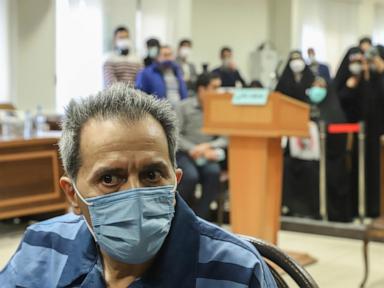Should we allow prisoners on death row to volunteer for execution?

On Oct. 17, while national attention was focused on whether the state of Texas would execute an innocent man, the state of Alabama put Derrick Dearman to death, with much less fanfare.
There was no real doubt about whether he killed five people with an ax and gun eight years ago. As NBC News reports, after he initially entered a not guilty plea, Dearman “fired his two court-appointed attorneys and pleaded guilty.”
A gruesome crime, a cruel penalty. Some might think justice was done, case closed.
But there was an important and troubling wrinkle to Dearman’s journey to the death chamber that is worthy of attention: He “volunteered” for his own execution.
The Death Penalty Information Center defines volunteers as “individuals who waived at least part of their ordinary appeals or who terminated proceedings that would have entitled them to additional process prior to their execution.”
Dearman is not the only person in this country’s recent history to fit that description. The center reports that “Since the reinstatement of the death penalty in 1976 through to the date below, at least 165 defendants have been volunteers — approximately ten percent of all executions.”
Over the last two decades, 2004 was the high-water mark for volunteers. In that single year, 10 people out of the 59 put to death terminated legal proceedings so that they could speed up their date with death.
Those who believe death row inmates should be able to volunteer talk about the need to respect prisoners' autonomy. Still others compare it to a kind of assisted suicide (with the state doing the assisting).
However, the comparison to assisted suicide is not apt. Nobody on death row can freely assess the options and give meaningful consent to waive meritorious legal appeals. And, even if they could, the state has an independent interest and duty to ensure that executions occur only in cases where there are no outstanding factual or legal issues.
Before looking more closely at why no one should be allowed to volunteer for their own execution, let’s consider Dearman’s case.
Over the course of the legal proceedings against him, Dearman was evaluated by several mental health experts — some retained by the prosecution, others by the defense. Not surprisingly, their opinions differed as to whether he was competent to enter his guilty plea.
In 2022, when the Court of Criminal Appeals of Alabama first reviewed Dearman’s case, it noted that he was then claiming he was “not competent to plead guilty and waive his right to counsel or stand trial.” He told the court that his "’serious mental illness, neurocognitive dysfunction, and history of trauma’ established that he was ‘incapable of understanding the nature and object of the proceedings against him’ and that he lacked the ability to consult with counsel or assist in preparing his defense.”
That court was unpersuaded.
Among other things, it noted that the trial court had “specifically questioned Dearman about his alleged request that his attorneys not enter mitigation evidence during sentencing.” Dearman “explained his reasoning for his decision and emphasized that the decision not to present mitigation evidence was his own choice.”
But in April of this year, Dearman changed his mind. He informed Alabama Gov. Kay Ivey, Attorney General Steve Marshall and others that he was dropping his appeals and wanted to be executed. At the same time, he fired the attorneys who were then representing him in the appellate process.
In an interview with AL.com, Dearman noted that “his attorney and his father tried to persuade him not to drop the appeals, but it didn’t matter. ‘I knew in my heart I was always going to make this decision.’” He explained that he had initially agreed to pursue appeals “for the sake of his family,” but had decided to give “the victims and their families to get the justice they rightly deserve to start the closure.”
But he also insisted that he did not want his decision to be taken as an endorsement of capital punishment. And in a truly revealing moment, Dearman said “dying is preferable to spending the rest of his life in Alabama’s brutal prison system.”
That preference appears to be one we should respect. But is it really? Or is it a choice made under duress? Dearman’s choice was like a “choice” made when someone puts a gun to your head and tells you that you have a choice: “Your money or your life.”
As Northwestern University Law Professor Meredith Roundtree puts it, prison conditions “contribute to the decision to abandon appeals by wearing the prisoner down to the point that he loses the will to live.” We could reduce the number of people who volunteer to be executed if we addressed the brutality that Dearman referenced and the dehumanizing way in which death penalty states treat those who are awaiting execution.
Many who oppose capital punishment think that their energy should not be spent preventing someone like Dearman from choosing to be executed. It seems much less important than preventing the execution of an innocent person.
In my view, that is a false choice. Death penalty opponents and all Americans should recognize that neither should have a place in the American legal system.
Austin Sarat is the William Nelson Cromwell Professor of Jurisprudence and Political Science at Amherst College. His views do not necessarily reflect those of Amherst College.
Topics
-
Iranian official claims Iranian-German prisoner died before he could be put to death; Iran earlier said it executed him
World - ABC News - November 5 -

'It's my car - why should an under-21 not be allowed in it?'
Top stories - BBC News - October 25 -
Celtics coach suggests fighting should be allowed in the NBA
Sports - Yahoo Sports - October 31 -
NASCAR: 23XI Racing and Front Row will be allowed to compete as open teams in 2025
Sports - Yahoo Sports - 4 days ago -
Prisoner who lived in U.S. executed in Iran over disputed charges
Top stories - CBS News - October 28 -

Germany recalls ambassador from Iran as it protests the execution of an Iranian German prisoner
World - ABC News - October 29 -

Nishad Singh, a Top FTX Executive, Is Given No Prison Time After Cooperation
Business - The New York Times - November 1 -

Ex-FTC Executive Singh Spared Prison for Role in Crypto Fraud
Business - Inc. - October 30 -

Gary Wang, a Top FTX Executive, Is Given No Prison Time
Tech - The New York Times - Yesterday
More from The Hill
-

Trump's NATO tightrope: Reforming the alliance while wrangling Capitol Hill
Politics - The Hill - 32 minutes ago -

Bezos pushes back on Musk claim he said Trump would lose
Politics - The Hill - 43 minutes ago -

Former Ethics panel chair ‘wouldn’t be at all shocked’ if Gaetz report released
Politics - The Hill - 55 minutes ago -

Graham knocks ICC over Netanyahu, Gallant: 'A dangerous joke'
Politics - The Hill - 1 hour ago -

Rahm Emanuel is a terrible choice for DNC chair
Politics - The Hill - 1 hour ago